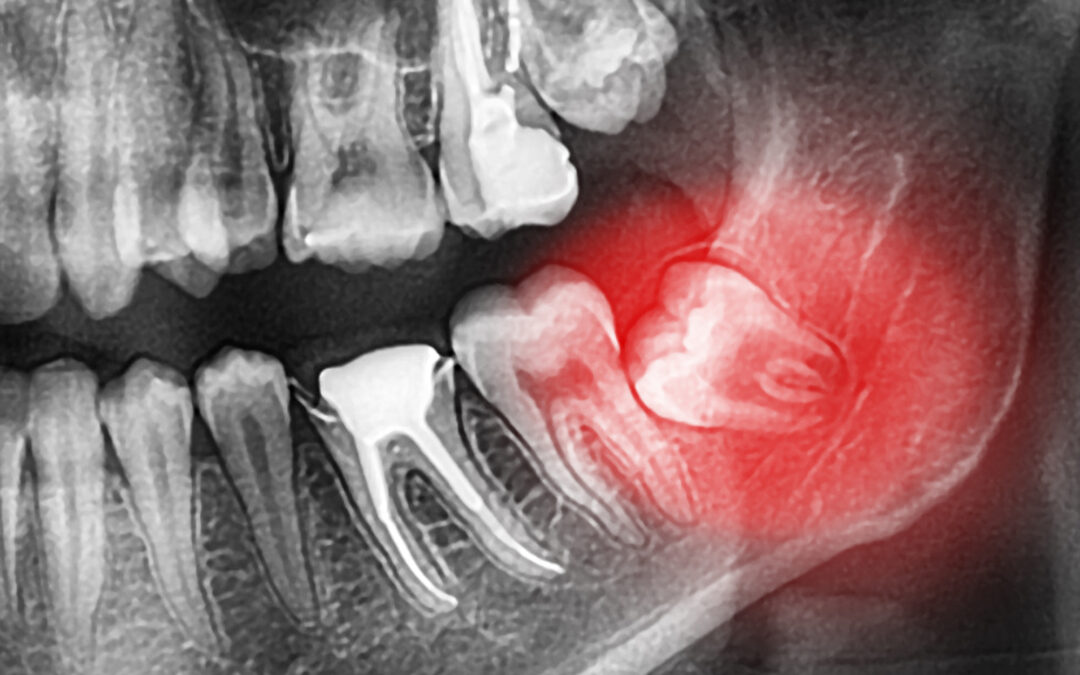Wisdom teeth, the third set of molars located at the back of your mouth, often become a topic of concern as they begin to emerge during late adolescence or early adulthood. For many, these teeth can cause more trouble than they’re worth, leading to the need for wisdom tooth extraction. This common dental procedure is not just about alleviating immediate discomfort but also plays a crucial role in ensuring long-term health benefits. In this article, we’ll explore how wisdom tooth extraction can positively impact your overall health and address common concerns such as dental anxiety.
The Importance of Wisdom Teeth Removal
Wisdom teeth are notorious for causing a range of issues. They often emerge improperly or become impacted, meaning they don’t fully erupt through the gum line. This can lead to a host of problems including:
– Crowding and Misalignment: As wisdom teeth attempt to come in, they can push against neighboring teeth, causing them to shift and potentially disrupt your bite. This misalignment can complicate oral hygiene and may necessitate additional orthodontic treatment.
– Infection and Decay: Partially erupted wisdom teeth create pockets between the tooth and the gum where bacteria can accumulate, leading to infections like pericoronitis. These infections can be painful and may spread if not treated promptly.
– Cysts and Tumors: Impacted wisdom teeth can form cysts or tumors in the jawbone, which may cause bone damage and necessitate further surgical intervention.
By opting for wisdom tooth extraction, you can avoid these potential complications and safeguard your dental health. But the benefits extend beyond just avoiding immediate dental issues.
Long-Term Health Benefits of Wisdom Tooth Extraction
1. Reduced Risk of Oral Health Complications: By removing wisdom teeth before they cause significant problems, you can avoid chronic issues such as gum disease, decay, and infections. This proactive approach helps maintain your oral health and reduces the need for more invasive treatments in the future.
2. Preventing Tooth Misalignment: As mentioned, wisdom teeth can crowd or shift other teeth, potentially undoing years of orthodontic work. By extracting them early, you can help preserve the alignment of your teeth and avoid the need for additional orthodontic correction.
3. Enhanced Overall Health: Oral infections and diseases can have far-reaching effects on your overall health. For example, untreated gum disease is linked to conditions such as heart disease, diabetes, and respiratory issues. By ensuring that wisdom teeth are properly managed, you can minimize the risk of these systemic health problems.
4. Improved Comfort and Quality of Life: Persistent pain or discomfort from wisdom teeth can affect your daily life, including eating, speaking, and even sleeping. Removing these problematic teeth can lead to a significant improvement in your quality of life, allowing you to enjoy daily activities without the hindrance of dental pain.
Addressing Dental Anxiety
For many people, the idea of undergoing a dental procedure like wisdom tooth extraction can trigger significant dental anxiety. It’s essential to address these concerns to ensure a smooth and stress-free experience.
1. Communication with Your Dentist: Open communication with your dentist about your fears and concerns is crucial. They can provide information about the procedure, explain the steps involved, and discuss pain management options. Understanding what to expect can alleviate some of the anxiety associated with the procedure.
2. Sedation Options: Many dental offices offer sedation options to help patients feel more comfortable during the extraction. These can range from local anesthesia to more advanced options like conscious sedation or general anesthesia, depending on the complexity of the extraction and your personal comfort levels.
3. Post-Operative Care: Knowing that you have a plan for recovery can also help ease anxiety. Your dentist will provide instructions on how to care for your mouth after the extraction, including tips on managing pain and avoiding complications. Following these guidelines can help ensure a smooth recovery process.
4. Support System: Having a trusted friend or family member accompany you to the appointment can provide additional comfort and support. They can help you navigate the post-operative period and ensure that you follow the care instructions provided by your dentist.
Wisdom tooth extraction may seem like a daunting prospect, but its benefits for long-term health are significant. By addressing potential complications early and managing dental anxiety effectively, you can enjoy better oral health and overall well-being. Removing wisdom teeth not only prevents immediate issues but also helps preserve your dental alignment, reduce the risk of systemic health problems, and improve your quality of life. If you’re experiencing issues with your wisdom teeth or have concerns about the procedure, consult with your dentist to discuss the best course of action for your health.

